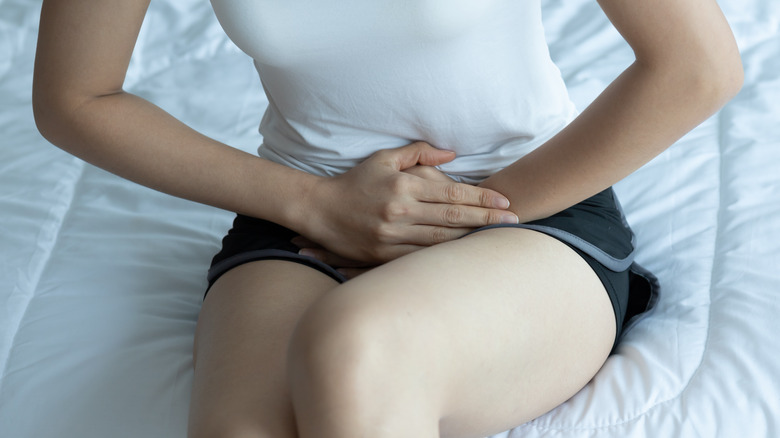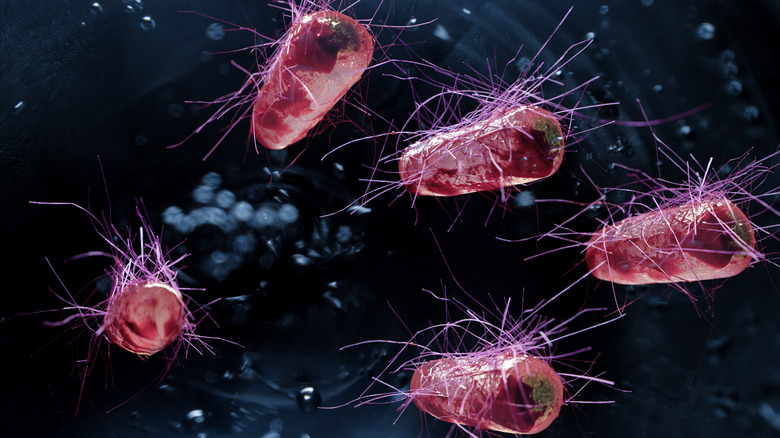Inside The Connection Between E. Coli And UTIs
If you've ever had a urinary tract infection (UTI), you're familiar with the unpleasant and uncomfortable symptoms that accompany it: feeling the need to urinate often but not releasing much — if any — urine when you do, pain during urination, cramps in the lower belly, and blood in your urine (per the Centers for Disease Control and Prevention). These symptoms occur when bacteria enter the urethra — the tube that connects the bladder to the body and allows urine to pass — and overgrow, leading to an infection. This infection can take place either in the urethra, the bladder, or the kidneys, with the latter causing the most serious complications. In the case of a kidney infection, you'll likely experience more severe symptoms, including fever, lower back pain, and vomiting.
Although UTIs can occur in anyone, they tend to affect women, according to the Cleveland Clinic. In fact, 1 in 5 women will experience one at some point in their lifetime. This is due to the anatomy of the female body, namely the shortened length of the urethra and its proximity to the anus, where infection-causing bacteria leave the body through the feces. One such bacteria is known as Escherichia coli, or E. coli, which plays a significant role in the development of UTIs.
E. coli is responsible for the majority of UTIs
You may have heard of E. coli in relation to food poisoning — it often contaminates raw meat and vegetables, explains the Mayo Clinic. Sometimes, it can lead to vomiting and diarrhea. These bacteria naturally live in our intestinal tract and are harmless in normal quantities, points out Healthline.
However, Healthline says that E. coli can travel from the anus to the urethra (especially in women where the distance is a lot shorter) and cause an infection in the urinary tract. It also happens to be the bacteria most responsible for this type of infection — between 80% and 90% of UTIs are caused by E. coli. It's possible to unwittingly increase the chances that this microorganism will make its home in your urethra, bladder, and/or kidneys. For example, if you don't take care when wiping (front to back always!), you may be bringing the bacteria into direct contact with the opening of your urethra. Additionally, sexual activities can also provide passage for E. coli from the anus to the urethra.
If you suspect you have a UTI, you should head to your doctor, who will ask you for a urine sample, states the Mayo Clinic. The analysis will determine the abnormal presence of E. coli or other bacteria, which will allow your doctor to prescribe the right course of antibiotics to get rid of the infection.


